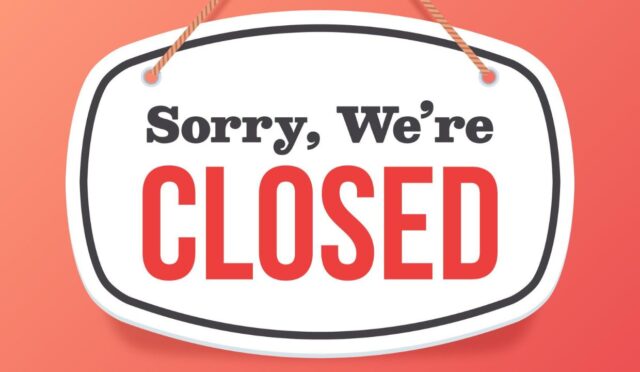Vietnam, with its dynamic economy and rapidly evolving agricultural landscape, is emerging as an attractive destination for smart agriculture investments. The country’s government has recognized the importance of modernizing the agriculture sector and is actively promoting smart agriculture practices.
However, like any investment, entering the Vietnamese smart agriculture sector requires careful consideration of regulatory matters and potential challenges. This article explores the opportunities and challenges of investing in smart agriculture in Vietnam and highlights the pivotal role of agriculture lawyers in Vietnam in assisting foreign investors.

The Smart Agriculture Landscape in Vietnam
Vietnam’s agriculture sector has seen significant transformation in recent years, transitioning from traditional practices to embracing smart agriculture technologies. Smart agriculture encompasses the use of cutting-edge technologies such as IoT devices, data analytics, and automation to enhance productivity, optimize resource use, and improve the quality of agricultural products.
Several factors contribute to Vietnam’s suitability for smart agriculture investments:
1.Agricultural Potential: Vietnam boasts diverse climatic conditions and fertile land, making it suitable for a wide range of crops and livestock. This diversity allows investors to explore various opportunities in the agricultural sector, from high-value crops to sustainable livestock farming.
2. Government Initiatives: The Vietnamese government has been actively promoting smart agriculture through policies and incentives. Initiatives include tax incentives, funding for research and development, and support for technology adoption in agriculture.
3. Growing Market Demand: As Vietnam’s middle class expands, there is an increasing demand for high-quality agricultural products. Smart agriculture practices can help meet this demand by ensuring consistent quality and efficient supply chain management.
4. Technology Adoption: Vietnam has shown a willingness to adopt new technologies. The country has a growing tech-savvy population and a thriving startup ecosystem, making it conducive to smart agriculture innovations.
Regulatory Considerations for Smart Agriculture Investment
While the opportunities in Vietnam’s smart agriculture sector are promising, investors must navigate several regulatory matters:
1.Land Use Rights: Foreign investors in agriculture typically lease land from the government or domestic landholders. It’s crucial to understand land tenure regulations, lease terms, and land use rights to ensure secure and compliant land access.
2. Investment Licensing: Foreign investors must obtain an investment license from Vietnamese authorities. The licensing process can be complex and varies depending on the scale and nature of the investment.
3. Environmental Compliance: Smart agriculture technologies should adhere to environmental regulations. Sustainable practices are increasingly important in Vietnam, and compliance with environmental standards is essential.
4. Intellectual Property Protection: Investors should protect their intellectual property, including innovative technologies and data analytics tools. Understanding intellectual property laws in Vietnam is essential for safeguarding investments.
5. Supply Chain Regulations: For investors involved in the entire supply chain, including processing and distribution, adherence to food safety and quality regulations is crucial.
6. Labor Laws: Understanding labor laws and practices in Vietnam is essential for ensuring a skilled and compliant workforce.
How Agriculture Lawyers in Vietnam Can Assist Foreign Investors
Agriculture lawyers in Vietnam play a pivotal role in helping foreign investors navigate the complex regulatory landscape and maximize the benefits of smart agriculture investments. Here’s how they can assist:
1.Legal Expertise: Agriculture lawyers in Vietnam possess in-depth knowledge of local laws and regulations related to land use, foreign investment, and environmental compliance. They can provide expert guidance on legal matters and ensure full compliance with Vietnamese law.
2. Due Diligence: Conducting thorough due diligence is essential before making any investment. Lawyers can assist in assessing the legal risks, verifying land titles, and evaluating the regulatory requirements specific to smart agriculture ventures.
3. Negotiating Agreements: Lawyers can assist in negotiating agreements, such as land leases, partnerships, and technology transfer agreements, to protect the interests of foreign investors. They ensure that contracts are legally sound and enforceable.
4. Intellectual Property Protection: Protecting intellectual property is critical in smart agriculture. Lawyers can help foreign investors register patents and trademarks and provide legal recourse in case of infringement.
5. Dispute Resolution: In the event of disputes or legal issues, agriculture lawyers can represent foreign investors in negotiations or court proceedings. Their expertise can help resolve conflicts efficiently and in the investor’s favor.
6. Compliance and Permitting: Lawyers assist in securing the necessary permits and licenses, guiding investors through the often intricate regulatory processes. This ensures that foreign investors operate within the bounds of the law.
7. Tax and Financial Matters: Lawyers provide insights into tax structures and financial planning, helping investors optimize their financial strategies in compliance with Vietnamese tax laws.
8. Environmental and Sustainability Compliance: With a growing emphasis on sustainable practices, agriculture lawyers can advise investors on aligning their operations with environmental regulations, fostering sustainability, and gaining public trust.
Investing in smart agriculture in Vietnam offers significant opportunities, given the country’s agricultural potential and government support. However, navigating the regulatory landscape can be challenging. Agriculture lawyers in Vietnam serve as invaluable partners for foreign investors, offering legal expertise, ensuring compliance, and safeguarding investments.
Foreign investors looking to capitalize on the smart agriculture boom in Vietnam should engage with experienced agriculture lawyers who understand the local nuances and can provide tailored legal solutions. With their guidance, investors can confidently enter the Vietnamese smart agriculture sector, contributing to its growth and reaping the benefits of this promising industry.
Agriculture is the world’s most labor-intensive economic sector, and is a major source of food and income for many people living in poverty.
So investing in agriculture is not only one of the most effective strategies to improve food security and promote sustainability, but it is also essential for the economic development of many countries.
About ANT Lawyers, a law firm in Vietnam
We help clients overcome cultural barriers and achieve their strategic and financial outcomes, while ensuring the best interest rate protection, risk mitigation and regulatory compliance. ANT lawyers has lawyers in Ho Chi Minh city, Hanoi, and Danang, and will help customers in doing business in Vietnam.
Source: https://antlawyers.vn/update/agriculture-lawyers-in-vietnam.html













